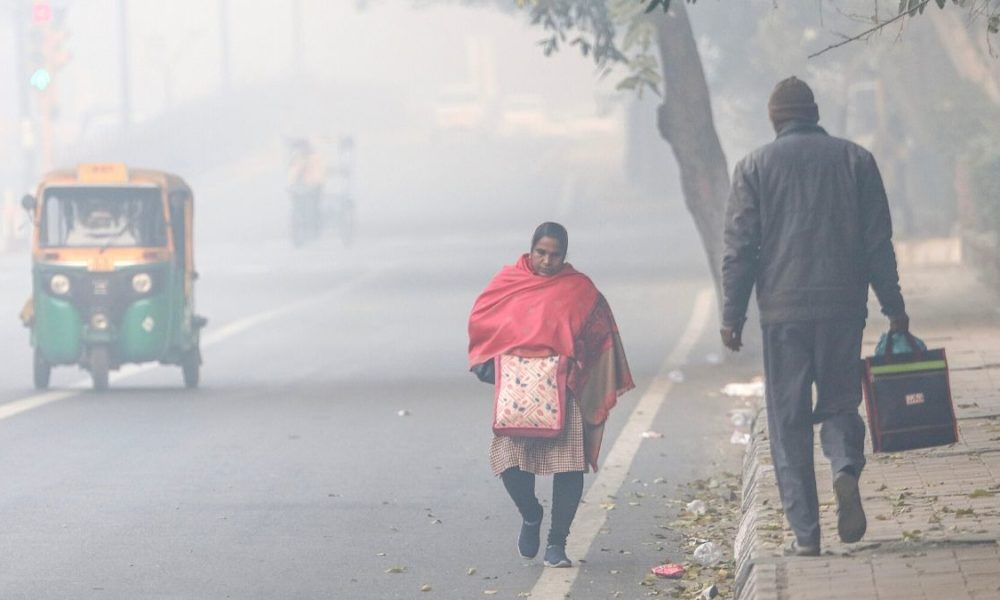Covid-19 has changed the world we live in. The the World Health Organization (WHO) has received reports of four million cases of Covid-19 and almost 275,000 lives have been lost. We have made peace with the fact that we may need to live altered lives for the next twelve to eighteen months and travel will be severely restricted. We are being creative in the ways that we can get work done and are appreciating open spaces more than ever before.
Those members of our community who were previously unseen and unnoticed like the local vegetable vendor, cleaners and delivery men have become heroes. As human populations stay indoors, animals roam free on our streets, the skies are clearer than ever before, and the water from parts of our Ganga are even fit to drink. The plight of migrant workers has been gravely aggravated by the lockdown, though it is an area that deserved our attention much before Covid-19.

One of the human race’s greatest strengths is innovating and learning from past experiences; this is helping us deal with Covid-19 and can help us deal with another pressing global challenge namely climate change. Climate change and Covid-19 are real emergencies which impact our health, the economy and the world we live in. The key difference between the two is that Covid-19 affects us today and the impact of climate change is staggered.
Perhaps the most important lesson is that the planet is one unit. Consumed by the concepts of borders and nation states we conveniently forget that nature does not recognise man-made boundaries. The impact of the actions of a few in one part of the world can be felt by all of humanity. For example, the largest contributors to climate change include the United States, China and the European Union; however, countries like Yemen, Haiti and Kiribati are at extreme risk, although their emissions are far less.
Second, faith in science has to be restored. Despite the overwhelming evidence published by scientists, climate change has been doubted by legislators, senior government officials and even students. Those who disbelieve climate change are known as “climate deniers”. Our search for both a cure and vaccine for Covid-19 is being spearheaded by scientists.
The global community today is entirely reliant on the scientific community. We are making the connection that if these are the people we depend on to save humanity from the greatest crises many of us have seen in our lifetimes, perhaps we should take their timely warnings about climate change as well and act differently. Third, it is possible to reduce our consumption and live life at a slower pace. The lockdown has made us appreciate all things local.
We consume much less that what we did before the lockdown. Designers have long spoken of sustainable fashion, reusing, refurbishing and upscaling the things we already own. These movements remained sidelined by large-scale fast fashion brands. Perhaps this pause has taught us that we need far less than we imagined. Fourth, we can innovate and act fast. Three days back, the WHO stated there are eight top candidates for a vaccine. Under normal circumstances, it would at least six to ten years for a vaccine to be developed, tested, gain the necessary approvals and be rolled out to members of the public.
One such vaccine being developed by the Oxford University shows great promise and the Serum Institute of India has partnered with them to produce this vaccine. In fact, the Serum Institute of India will be manufacturing the vaccine even before confirmation of successful clinical trials.
The manner and pace with which the scientific community has come together to problem solve in the case of Covid-19 is impressive and astounding. For climate advocates, while this moment brings with it great hope as it means that when people want to create change it is possible with impressive time lines which can be followed while adopting sustainable technologies.
Finally, the poor are the most vulnerable to both the effects of Covid-19 and climate change. As I write this article, there are millions of migrant workers who are in complete state of flux. They were left stunned by the lockdown and as restrictions on constructions activities continue to lift, they find themselves having to return to their jobs.
The most gutwrenching is the death of sixteen migrant workers who were run over by a goods train passing through Aurangabad. Vulnerable populations will suffer the effects of climate change-related altered monsoons, desertification and floods. As early as 1990 the Intergovernmental Panel on Climate Change (IPCC) observed that the climate change would gravely impact human migration. It has been predicted that 200 million people — also known as “climate refugees” — will have to leave their homes and search for new ones by 2050.
They will be gravely impacted by the changing elements like desertification, coastal flooding and shoreline erosion. It is most likely that these will be vulnerable populations like migrant workers of today. In India, 60% of our agricultural produce relies on water from the rains and the agricultural sector employs more than 50% of our population. Erratic monsoons cause by climate change have a terrible impact on populations reliant solely on agricultural income.
The Prime Minister has, through his ‘Aatmanirbhar Bharat’ scheme, come to the rescue of Indian businesses and there is tremendous opportunity here to encourage sustainable enterprises. In conclusion, we must ensure that while we are working towards being self-reliant, we do not compromise our environment and move towards reduced carbon emissions.
We need to strike a balance between being self-reliant and collaborating with the world to problem solve. India has a unique opportunity to lead the developing world on a path which is both economically and ecologically sound. The strategy India crafts today will be critical in our fight against climate change.







